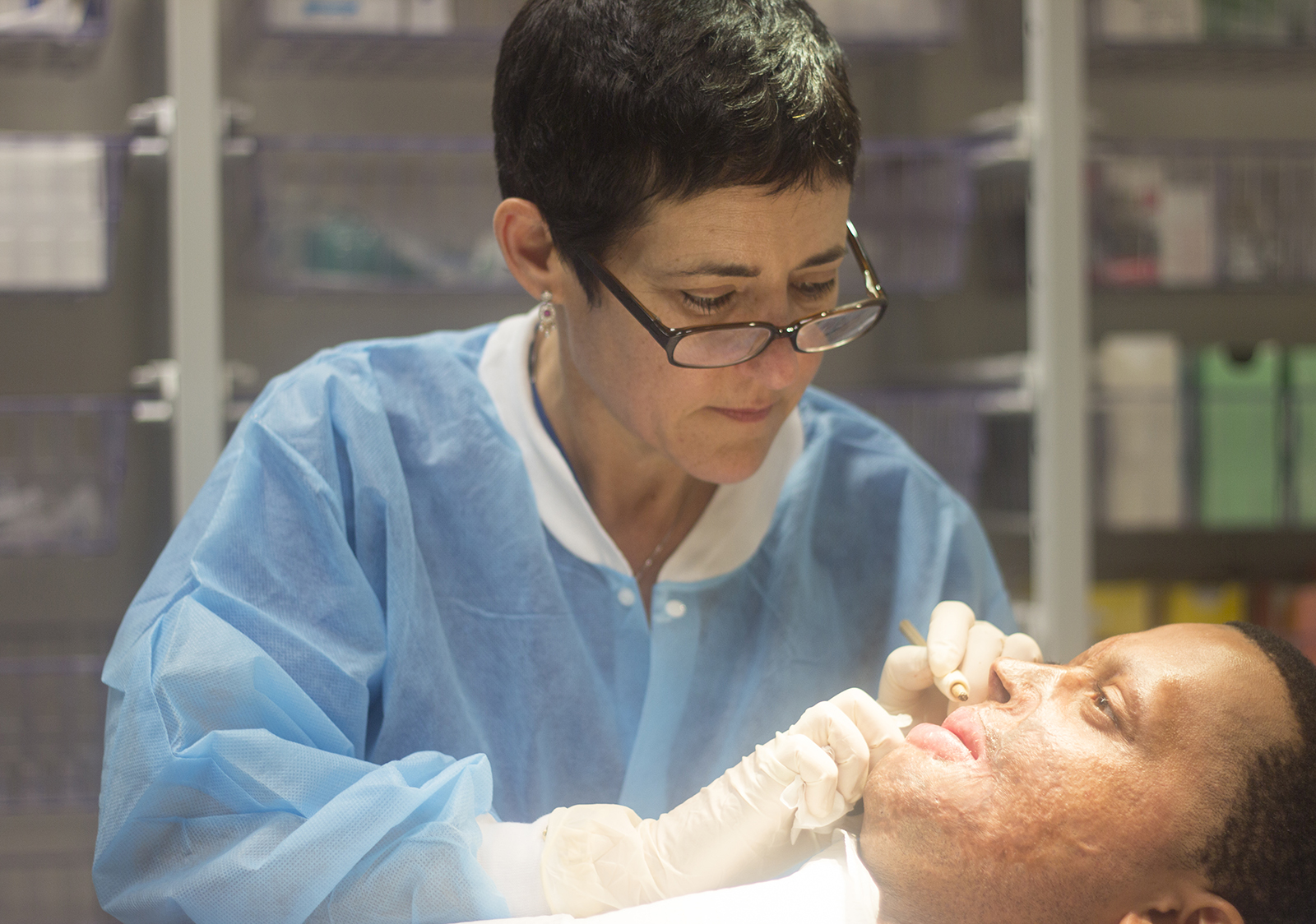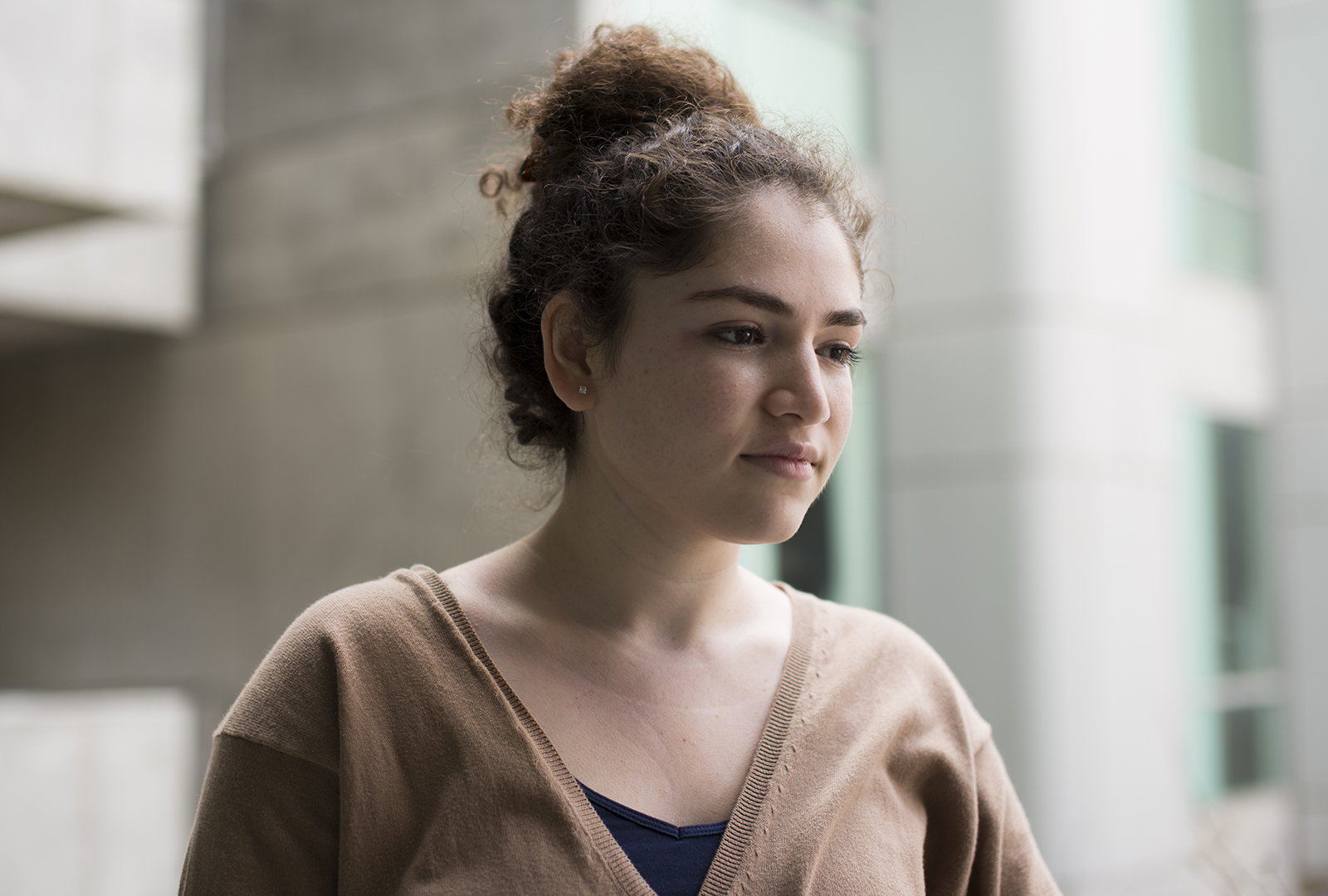A 5-year-old boy ran, laughing, across the room toward his friends, causing portraits of his classmates’ faces to flash up on the wall. The excited voices of kindergartners quickly filled the room. Read more...
Photo: Noel Enyedy, an associate professor of education, worked with kindergartners at the UCLA Lab School for a new interactive visual teaching system called the Cyber Mural. (Kelsey Kong/Daily Bruin)



